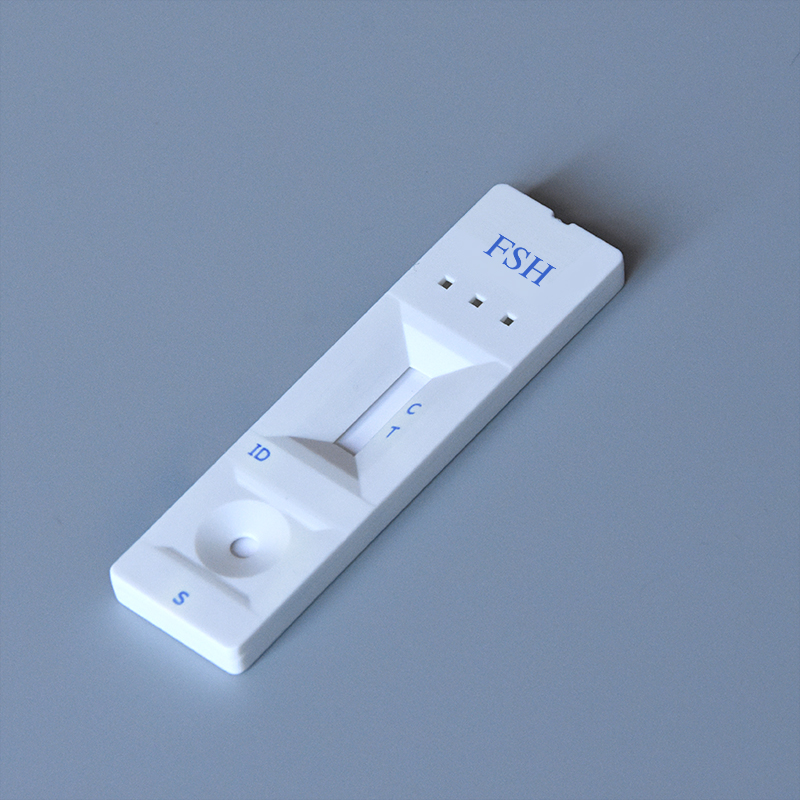When it comes to understanding female fertility, one of the most important tools is the FSH test. FSH, or Follicle-Stimulating Hormone, plays a central role in regulating the menstrual cycle and supporting ovarian function. For women trying to conceive—or those experiencing irregular cycles—an FSH test can provide crucial insights into reproductive health.
This guide explains what FSH testing is, why it matters, when to test, how to interpret the results, and why using an at-home fertility test kit could be the most convenient way to start your fertility journey.
What is an FSH Test?
The FSH hormone test for women measures the amount of follicle-stimulating hormone in the blood or urine. In women, FSH is responsible for stimulating the ovaries to produce eggs each month. Healthy FSH levels support regular ovulation, balanced cycles, and a strong fertility potential.
When FSH levels are too high or too low, it can be a sign of hormonal imbalance, diminished ovarian reserve, or conditions like Polycystic Ovary Syndrome (PCOS). That’s why the FSH fertility test is often one of the first steps in evaluating a woman’s reproductive health.
Why is FSH Testing Important for Fertility?
A female fertility test like FSH testing can uncover hidden factors that may be affecting your chances of conception. Some of the main reasons include:
Assessing Ovarian Reserve
High FSH levels often indicate a lower number of viable eggs (also known as reduced ovarian reserve). This is especially relevant for women over 35 who may be planning pregnancy.Explaining Menstrual Irregularities
Women experiencing irregular or missed periods can use FSH testing to identify hormonal causes that may interfere with ovulation.Detecting Hormonal Imbalances
Abnormal FSH levels can point to:Primary Ovarian Insufficiency (POI), sometimes called early menopause
Polycystic Ovary Syndrome (PCOS)
Other reproductive hormone disorders affecting ovulation and conception
With these insights, women can better understand their reproductive timeline and fertility potential.
When Should You Do an FSH Test?
FSH levels vary throughout the menstrual cycle, so timing is important. Doctors recommend testing FSH on day 2 or day 3 of the menstrual cycle. This early-stage measurement provides a more accurate reflection of ovarian function and egg reserve.
How to Understand FSH Test Results
Interpreting an FSH fertility test requires context, but here’s a simple overview:
Low or Normal FSH Levels – This usually indicates a healthy ovarian reserve and good fertility potential.
High FSH Levels – This may signal reduced ovarian reserve. Possible causes include:
Perimenopause or menopause
Polycystic Ovary Syndrome (PCOS)
Primary Ovarian Insufficiency (POI)
Thyroid or adrenal gland disorders
Chromosomal issues such as Turner Syndrome
It’s important to remember that one test alone doesn’t provide the full fertility picture. Results should be reviewed alongside other female fertility tests, such as AMH testing, ultrasounds, or hormone panels.
At-Home FSH Test Kits: A Convenient Option
Today, many women are choosing at-home fertility tests for quick and private insights. An at-home FSH test kit allows you to measure hormone levels without needing to visit a clinic.
Benefits of at-home testing include:
Privacy – Conduct the test in your own home.
Convenience – No waiting for doctor’s appointments.
Empowerment – Gain knowledge about your ovarian reserve and fertility health.
While home test kits are reliable for initial screening, it’s always best to discuss results with a healthcare provider for further interpretation and next steps.
Taking Charge of Your Fertility Journey
If you’re trying to conceive, curious about your reproductive health, or experiencing cycle changes, an FSH hormone test is a smart place to start. Knowing your hormone levels helps you make informed decisions—whether it’s planning for pregnancy, exploring fertility treatments, or simply understanding your body better.
Ready to take control of your fertility journey? Try our at-home FSH test kit today and get the answers you need to move forward with confidence.





